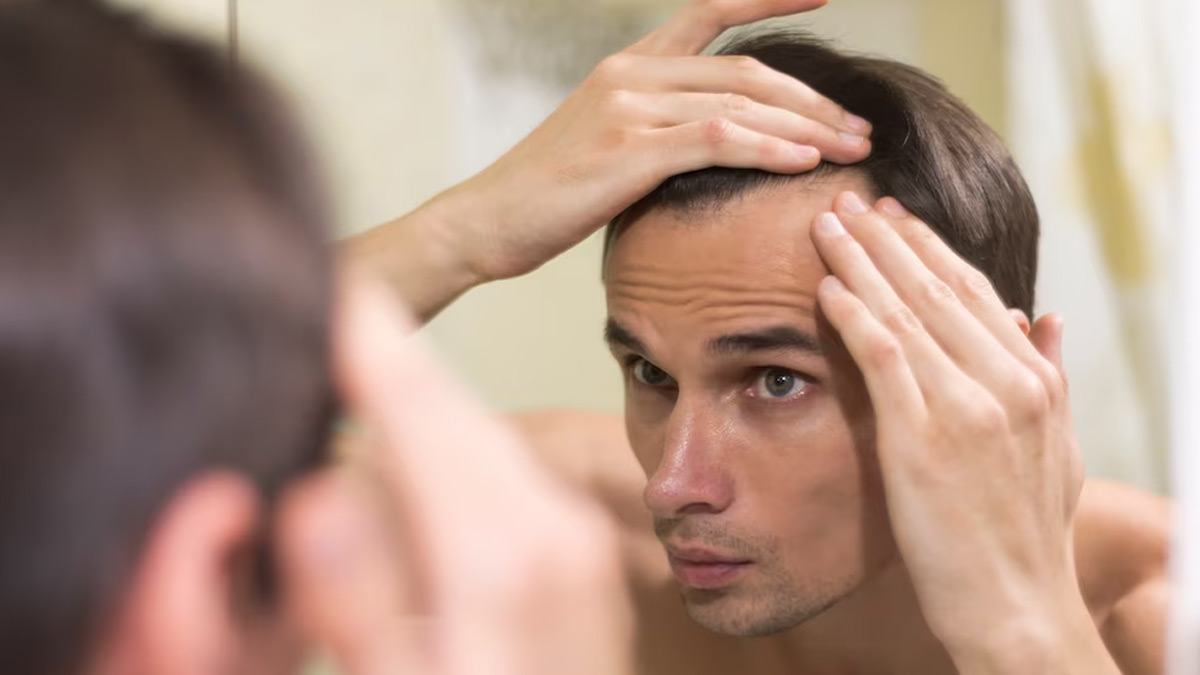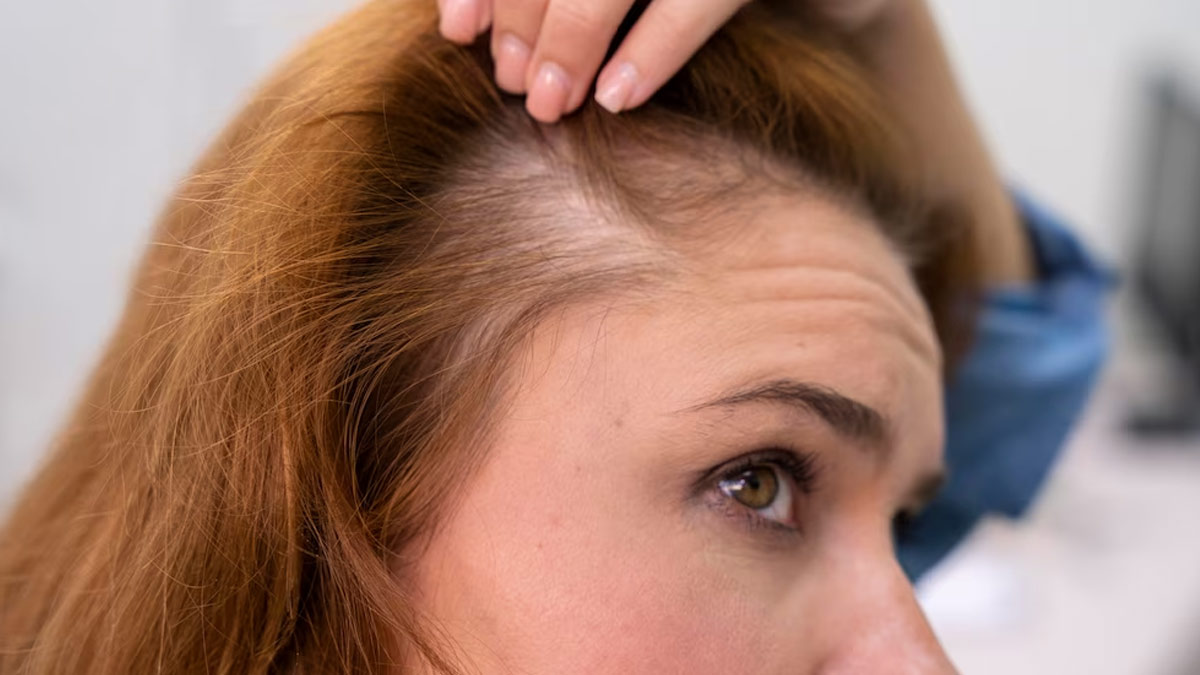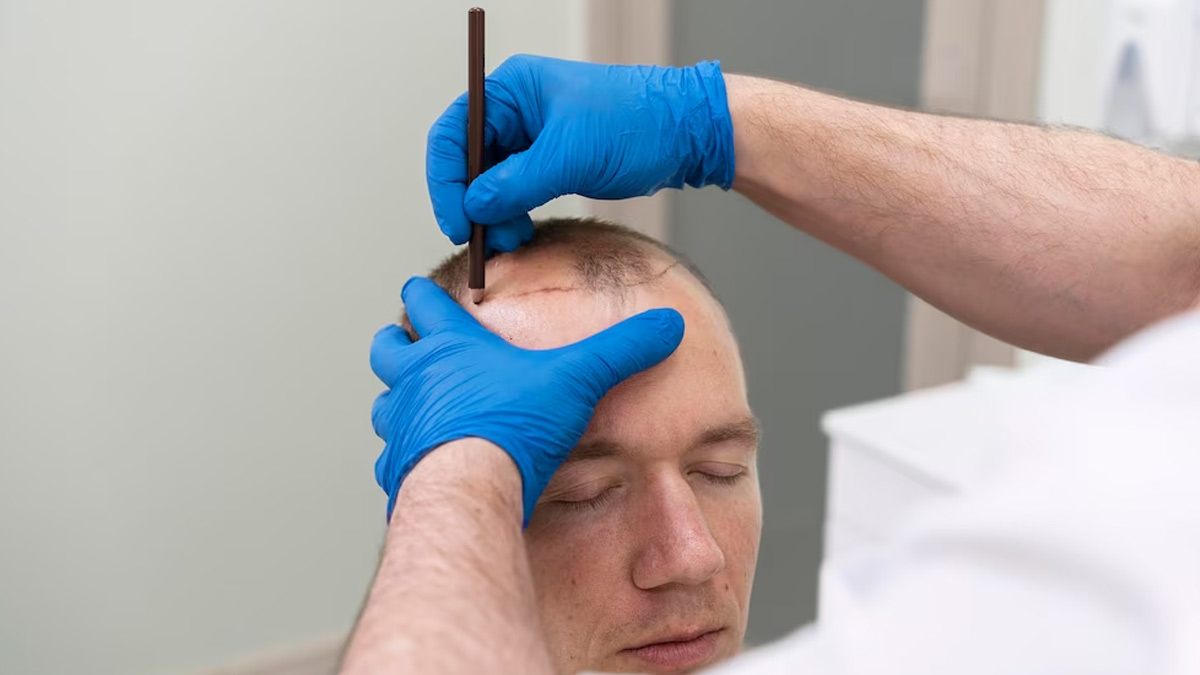
A receding hairline can have an influence on mental health, it might lower self confidence, and emotional well-being. Many people who lose their hair may feel self-conscious or unattractive, which can contribute to social isolation or anxiety.
Table of Content:-
There is a bidirectional relationship between hair loss and depression. This was the outcome of a study that included over six million participants and investigated the link between a form of hair loss and sadness. Dr SK Gupta, Dermatologist, DMCH, Darbhanga, Bihar suggested some strategies for coping with the emotional aspects of hair loss.
It Is Always Good To Accept
Accepting that hair loss is happening can be an important first step in dealing with its emotional effects. To know that many people will experience some form of hair loss during their lives can help normalise the experience and reduce feelings of isolation or embarrassment.

Also read: Ayurvedic Remedies To Treat Bald Patches
Educate Yourself
Learn about the causes of hair loss and the treatments available. Hair loss can result from genetics, hormonal changes, stress, and various health conditions. Knowing why you're experiencing hair loss can help you target the problem more effectively and find specific solutions, whether medical or lifestyle-related.
You Can Consider Treatment Options
Numerous treatments are available for managing hair loss, including medications like minoxidil and finasteride, hair transplant surgeries, or laser therapy. Consulting with a dermatologist or a trichologist can provide guidance on the best options based on the cause and extent of your hair loss.
Explore Hair Styling and Cosmetic Solutions
Changing your hairstyle to make hair loss less noticeable can be a practical and immediately rewarding approach. Hair stylists can offer suggestions on styles that cover thinning areas effectively. Additionally, hair fibres, concealers, or wigs are non-invasive options to improve appearance and boost confidence.

Focus on Overall Wellness
Taking care of your general health can sometimes positively impact hair health. Ensure a balanced diet, adequate sleep, regular exercise, and proper stress management. Activities like yoga and meditation can also help reduce stress, which is often linked to hair loss.
Support Networks
Reach out to others who are also experiencing hair loss. Many online and offline support groups and forums are available where individuals share their experiences and coping strategies. These communities can provide comfort and practical advice that can help you feel less alone.
Professional Counselling
If hair loss severely impacts your mental health, consider seeking help from a mental health professional. Therapy can offer strategies to enhance self-esteem and cope with negative thoughts related to body image issues.
Set Realistic Goals
Set achievable goals for your hair loss treatment and emotional health strategies. Recognize that while some treatments may not restore your hairline to its original state, they can still contribute to your sense of well-being and control over the situation.
Also read: Female Pattern Baldness: Causes, Symptoms, Types, And Treatment
Practice Self-Compassion
Be kind to yourself during this process. It's important to acknowledge your feelings about hair loss and treat yourself with compassion, as you would a friend in a similar situation.
Dealing with a receding hairline includes addressing both the physical and emotional health difficulties associated with hair loss. You can better manage the effects of hair loss on your life by employing a comprehensive strategy that includes treatment, lifestyle changes, and emotional support.
Also watch this video
Read Next
Mental Health Matters: Expert Lists Things You Should Know Before You Go For Depression Screening
How we keep this article up to date:
We work with experts and keep a close eye on the latest in health and wellness. Whenever there is a new research or helpful information, we update our articles with accurate and useful advice.
Current Version